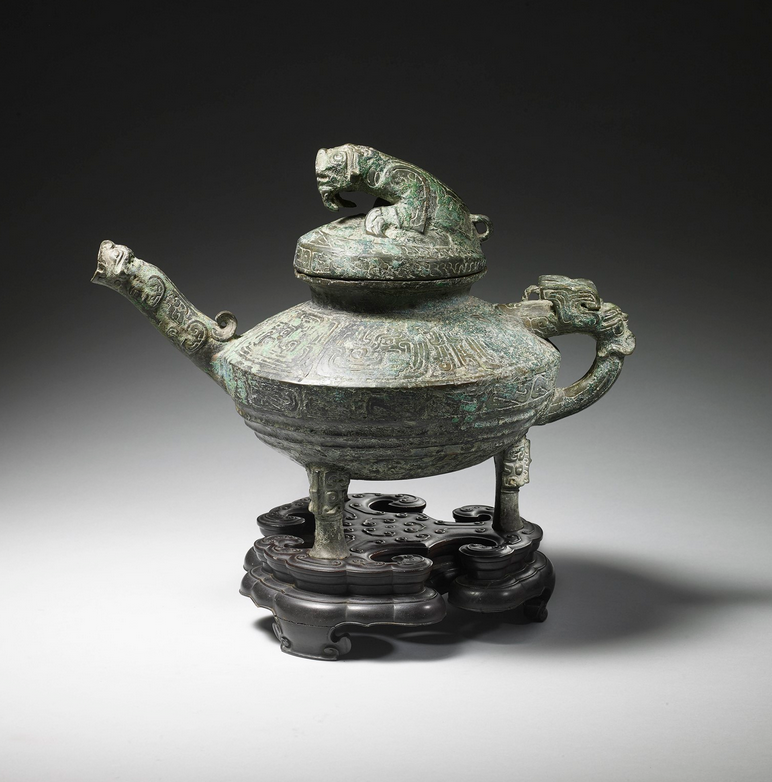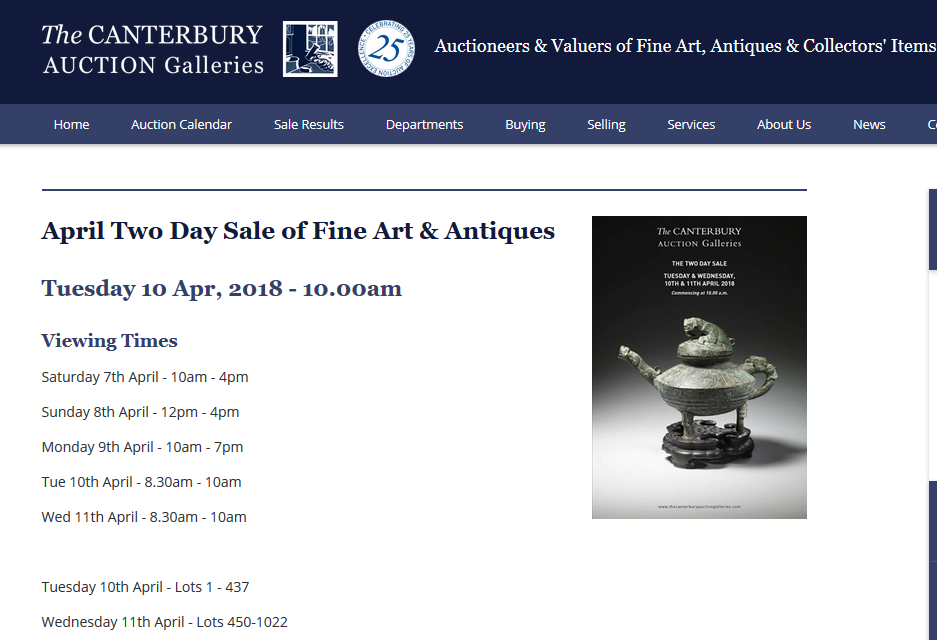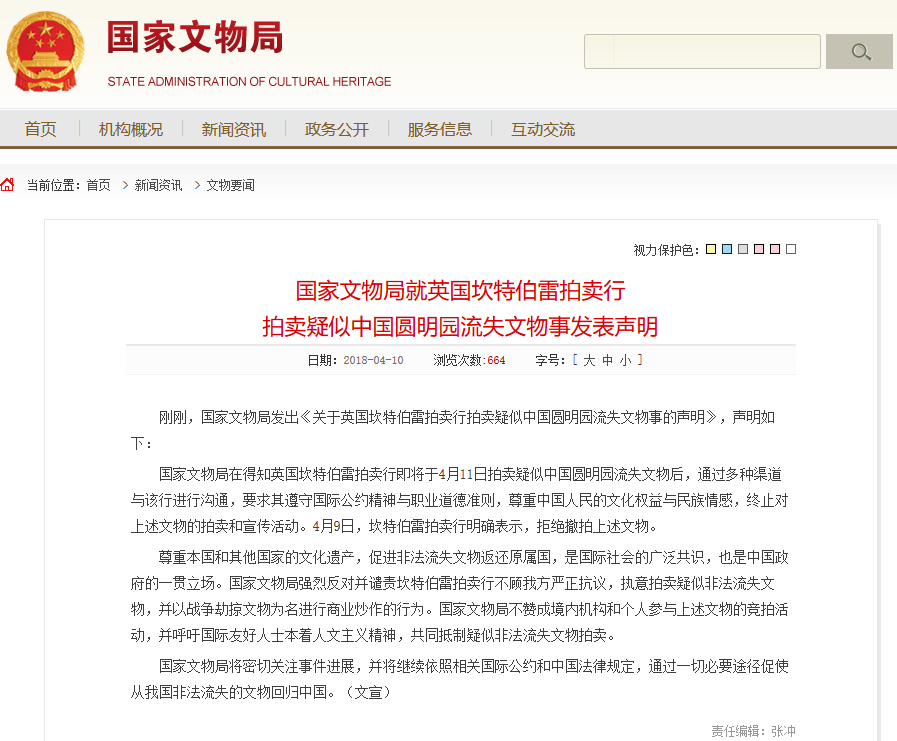Anger over sale of ancient Chinese bronze artifact
By Wang Kaihao in Beijing and Bo Leung in London | chinadaily.com.cn | Updated: 2018-04-11 01:46

Calls for boycott as gallery goes ahead with auction despite complaints
An auction house in the United Kingdom is going ahead with the sale of a relic suspected to have been taken from Beijing’s Old Summer Palace in 1860, despite calls from China for the precious bronze artifact not to be sold.
The 3,000-year-old piece, referred to as the Tiger Ying, is a bronze water container with tiger-shaped decorations and carved inscriptions. Experts generally consider it to be from the Western Zhou Dynasty (c. 11th century-771 BC).
There are only seven known ying artifacts around the world.

The auction has attracted international attention, with China’s national cultural relics watchdog calling for the boycott.
“We don’t agree with any organization, from home or abroad, taking part in the auction,” said a statement released on Tuesday by the State Administration of Cultural Heritage.
“We also call for people with a humanitarian spirit to commonly boycott the auction of cultural relics that were lost illicitly.”
To be considered in the auction for the Tiger Ying at The Canterbury Auction Galleries, bidders are required to register and place a deposit of 25,000 pounds ($35,400).
An old letter from a British military officer indicated the item was stolen from the Old Summer Palace in Beijing, an imperial court resort of the Qing Dynasty (1644-1911).
The garden resort was destroyed by invading Anglo-French military forces in 1860 during the Second Opium War. Many treasures from the Old Summer Palace were taken overseas.
Consequently, when it was announced that the Tiger Ying would be offered for sale through the Canterbury auction house on April 11, objections were raised in China.

According to the administration’s statement, the auction house was contacted and asked to stick to international law and respect Chinese people’s sensitivity on the matter. The Canterbury Auction Galleries responded on Monday, refusing to withdraw the artifact from the auction catalog.
“We strongly condemned the action taken by Canterbury Auction, which ignored our protest, insisted on putting the cultural relic up for auction and even promoted it as war booty,” the statement said.
The administration also vowed to keep close tabs on follow-up incidents and take countermeasures.
“We will take any action necessary to bring stolen Chinese cultural relics home,” the statement added.
In recent years, the administration has investigated many Chinese artifacts lost overseas and endeavored to prevent them from being resold.
In 2016, some Dunhuang scripts, illegally taken from Gansu province by a Japanese abbot in the early 20th century, appeared in a Yokohama auction house, but that auction was canceled in the wake of Chinese protests.
























